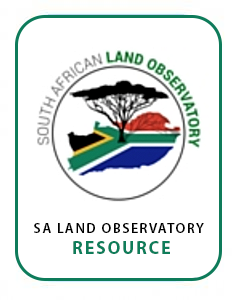Focal point
Location
PLAAS was founded in 1995 as a specialist unit in the School of Government, Economic and Management Sciences Faculty at the University of the Western Cape (UWC), Cape Town. Since then, PLAAS has developed a proven track record of undertaking high-quality research on land and agrarian reform, poverty, and natural resource management in South Africa and the southern African region.
Besides research and postgraduate teaching, PLAAS undertakes training, provides advisory, facilitation and evaluation services and is active in the field of national policy development. Through these activities, and by seeking to apply the tools of critical scholarship to questions of policy and practice, we seek to develop new knowledge and fresh approaches to the transformation of society in southern Africa.
Resources
Displaying 36 - 40 of 54Land Demand, Targeting & Acquisition in South Africa’s Land Reform
Includes how land is currently identified and acquired; recognising and responding to demand; what do we know about land needs?; innovative ways of working with needs / demand and supply; land prices; towards alternatives; conclusion; recommendations.
Land Use and Livelihoods in South Africa’s Land Reform
Includes patterns of land use in land reform; how land use is currently planned; livelihood impacts of land uses in land reform; dynamics in the commercial farming sector; international experiences; towards alternative land uses and livelihoods; conclusions; recommendations.
Policy options for land reform in South Africa: New Institutional Mechanisms?
Since the 2005 Land Summit, new approaches to land reform have been on the agenda, yet there remains little clarity on the way forward. The main focus has been on means of accelerating the redistribution of land through new modes of acquiring land. Acquisition is an important matter but if treated in isolation risks mis-specifying the core problems evident in land reform in South Africa. A new phase of land reform located within a wider agrarian reform is needed and will require new institutional arrangements.
Land Reform and Poverty in South Africa
The extent of land dispossession of the indigenous population in South Africa, by Dutch and British settlers, was greater than any other country in Africa, and persisted for an exceptionally long time. European settlement began around the Cape of Good Hope in the 1650s and progressed northwards and eastwards over a period of three hundred years.
Land and agrarian reform in the 21st century: changing realities, changing arguments?
Asks what convincing rationales exist for land reform in the 21st century and for land policies and programmes that have poverty reduction as their key objective? Argues that the economic bases of pro-poor land reform need reformulating in the rapidly changing conditions of the contemporary world. The unequal structures of international agricultural trade regimes need to be made integral to thinking about agrarian reform. Includes a table with arguments for land reform.




